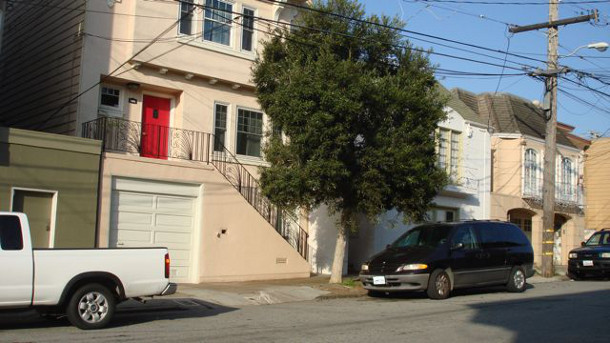
It may surprise you to know that street trees want many of the same things we do. This year, the sidewalk tree on your block resolves to:
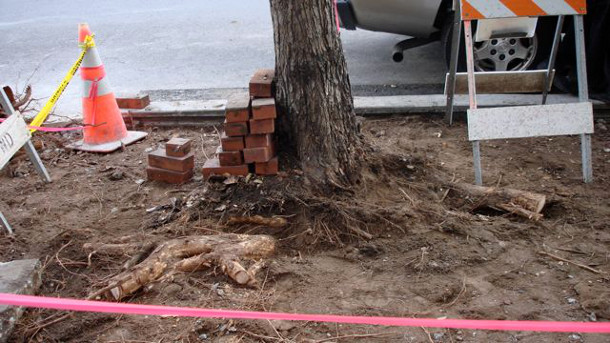
1. …Be More Neighborly – I know I got into your sewer last year, but the old clay pipe was so cracked, and full of excellent water and nutrients! How many of you could pass up an open door to a free buffet? Mmm hmm, I thought so! Now that you have a new PVC sewer line I will (have to) behave myself.
Your resolution: Roots can’t break into an intact pipe, but they can and do exploit cracks and weaknesses. Keep your sewer line maintained and replace defective clay pipes with those made from more durable materials.
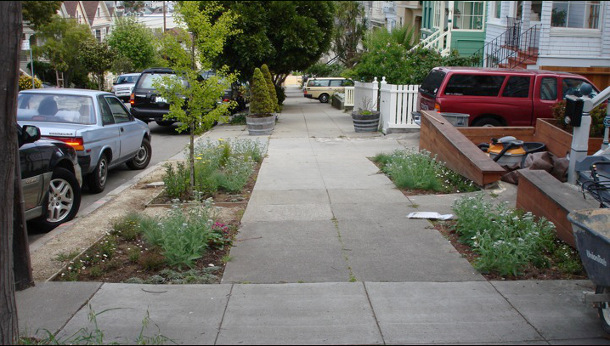
2. …Stay Hydrated – Hey, it’s nice that you wash the sidewalk every now and then, but…see that new sidewalk garden down the street? Not only does it absorb extra stormwater, keeping it out of the sewer system and preventing flooding, but us trees love the extra H2O. How about taking some concrete off my roots this year?
Your resolution: Less concrete means fewer sidewalk repairs and better water quality! Many local governments, utilities and community organizations are providing funding or support for sidewalk gardens or rain gardens – find out what’s going on in your community.
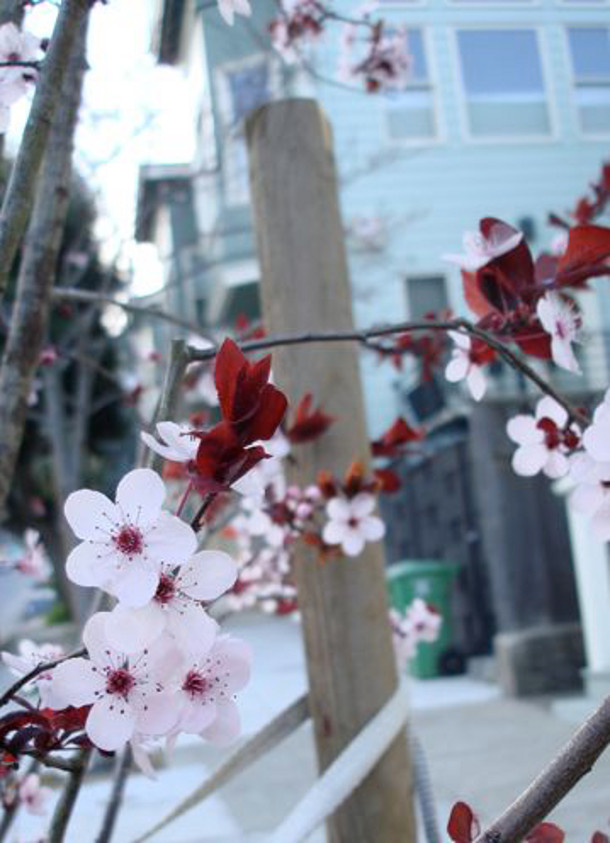
3. …Get Lucky! – Most of my flowers – and those of my neighbors – are male. We don’t produce messy fruit, but we give off lots of pollen and torment allergy sufferers. Finally, someone on the block recently followed the advice of Thomas Ogren and planted a tree of my species with female flowers!
Your resolution: Scientists predict doubled pollen counts and longer allergy seasons in the coming decades. Fruiting plants feed humans and wildlife. Avoid all-male plants whenever possible. Visit allergyfree-gardening.com to learn more.
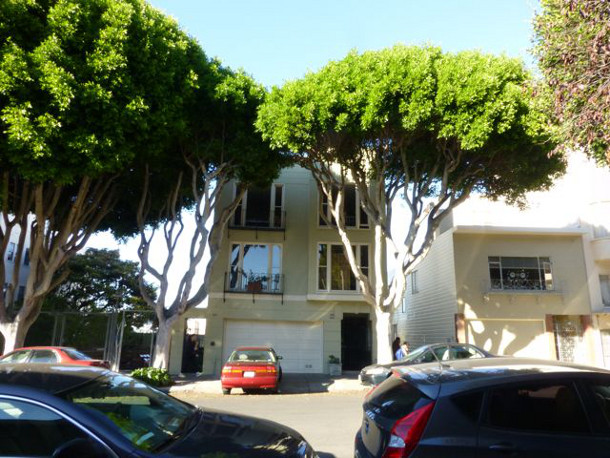
4. …Keep It Together: I don’t want to break apart and drop a branch on one of you little mobile creatures, or your semi-permanent structures, but your pruning practices don’t make it easy! Removing all the lower and inner branches (a.k.a. “over-thinning,” “stripping”) places more foliage weight at the ends of branches. When this end weight blows in the wind, it puts a lot more stress on branch attachments and I can lose branches. Extreme over-thinning is known as lions-tailing.
Your resolution: When pruning a tree, there should be an even distribution of foliage on each branch, as noted in the ANSI professional pruning standards. Correct pruning costs more than stripping out all the lower and inner branches, but you’ll sleep better during a windstorm.
Happy New Year from your local urban tree! Let’s work together to improve each other’s quality of life this year.
Ellyn Shea is a consulting arborist and garden educator in San Francisco. Photos are from her personal collection.






Leave Your Comment